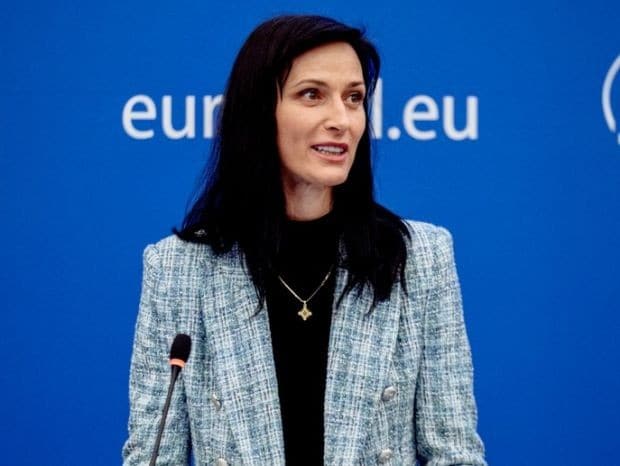Collaboration and investment are key to the future of digital education in Europe. 20 million digital professionals is our ambition by 2030. Currently, only 54% of European citizens have basic digital skills. This is the position of the Bulgarian European Commissioner Maria Gabriel regarding the improvement of digital skills in the field of education, informs the press center of the European Commission in Sofia.
At a press conference in Strasbourg, Gabriel presented a package of recommendations to EU member states to improve training in this area. The recommendations will focus on the key factors contributing to the success of digital education in classrooms and ways to improve the digital skills of teachers and students.
“80% of people of working age have basic digital skills and 20 million are digital professionals is our ambition by 2030. Currently, only 54% of European citizens have basic digital skills. With the new package of recommendations to improve digital skills, we aim to help overcome the challenges Member States face in the field of digital education. Investment, infrastructure and training are key to this,” said Maria Gabriel.
The recommendations are part of the leading initiative of the Bulgarian European Commissioner – the Action Plan in the field of digital education and are key to the construction of the European educational space until 2025.
The aim is to support European citizens’ access to high-quality and inclusive digital education and training.
The two recommendations are drawn up on the basis of consultations and structural dialogues held with all Member States in 2022. They will contribute to the creation of a highly effective digital ecosystem, including infrastructure, equipment and content, and support the digital skills and competences of teachers and students.
These two priorities require good coordination and cooperation at local, national and European level.
“The recommendations presented today are the basis and engine of our joint work with Member States, with teachers, students and educational institutions to ensure high-quality and accessible digital education and training. In the coming months, we will establish a high-level expert group with representatives from all Member States , which will support the successful implementation of the recommendations,” concluded Commissioner Gabriel.
The European Commissioner for Innovation, Scientific Research, Culture, Education and Youth Maria Gabriel is visiting yesterday Novi Sad, northern Serbia today, where, together with Serbian Prime Minister Ana Brnabic, she will inaugurate the new building of the BioSense Institute, Tanjug reported, quoted by BTA.
During the visit, Gabriel, Serbian Minister of Education Branko Ruzic and UNICEF Serbia Director Dejan Kostadinov will visit the Milan Petrovic Primary and Secondary Education School. On this occasion, equipment for the integration of technologies in schools worth 20,000 euros will be delivered.
Gabriel will visit the gallery of Matitsa Srabska together with Deputy Prime Minister and Minister of Culture Maja Gojkovic. The European Commissioner will familiarize herself with the achievements of Novi Sad as the European Capital of Culture for 2022 and with the heritage of Serbian art in a wider European context.
Gabriel visited the “OPENS” Youth Center and met with representatives of the youth in Serbia, with whom she talked about the experience of the time when Novi Sad was the European Youth Capital in 2019.
The announcement of the EU Office in the country emphasizes that Serbia has been participating since 2019 in the largest program to support education, training, youth and sports – Erasmus+, as a full member. With EU support, young people, athletes and students from Serbia participate in exchange and training projects on par with their EU peers.
More than 16,000 Serbian students have received scholarships to study in EU member states, while more than 80 organizations and sports associations from Serbia have benefited from the projects in the field of sports. At the same time, Serbian institutions have attracted more than 4,300 young people, students and teachers from Europe.
The EU has invested more than six million euros in the construction and renovation of more than 40 sports facilities throughout Serbia, and thanks to this assistance, more than 100,000 citizens and children can actively use the renovated or newly built sports centers, swimming pools and gyms in the main and secondary schools in Serbia.









